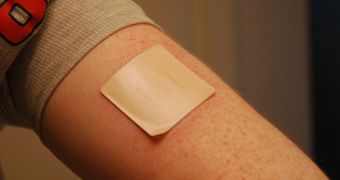Columbia University researchers discovered that using nicotine is a gateway for people who ultimately pass to using stronger drugs, such as cocaine. In their latest study – which was carried out on mice – the group studied the biological mechanism underlying this connection.
What researchers discovered was a statistical correlation between nicotine consumption and a person's risk of ultimately starting to use cocaine. The connection may extend to other chemicals as well, although researchers have not yet tested such a scenario.
It was additionally discovered that nicotine may literally be priming the brain for processing the behavioral effects that cocaine consumption triggers. The study was carried out based on anecdotal evidence from illicit drug users.
These people reported using alcohol or cigarettes shortly before, or immediately after, consuming heavier drugs. This connection has been known for years, and researchers have always wondered whether some type of causal relationship exists between the two behaviors.
Until now, studies conducted in this direction have evidenced no clear biological mechanism that could be considered evidence of such a causal link. However, the Columbia research team was able to produce that first experimental evidence that this is indeed the case.
In a paper published in the latest issue of the esteemed journal Science Translational Medicine, the team says that mice who were given nicotine inside their drinking water for as little as a week displayed elevated response to cocaine, when the drug was administered.
The key to understanding this connection was the discovery that nicotine affects gene expression in a previously-unsuspected manner. Tightly-packaged DNA molecule experiences structural changes, while the FosB gene – among others – displays different expression patterns after smoking.
Ultimately, these neural effects set the stage for the elevated response to cocaine the team reported seeing in the lab animals, PsychCentral reports. The datasets the team used in the new research were collected from the 2003 National Epidemiological Study of Alcohol Related Consequences.
“Now that we have a mouse model of the actions of nicotine as a gateway drug, this will allow us to explore the molecular mechanisms by which alcohol and marijuana might act as gateway drugs,” Eric Kandel, MD, explains.
“In particular, we would be interested in knowing if there is a single, common mechanism for all gateway drugs or if each drug utilizes a distinct mechanism,” adds the expert, a research scientists at the Columbia University Medical Center, and a senior author of the research paper.

 14 DAY TRIAL //
14 DAY TRIAL //